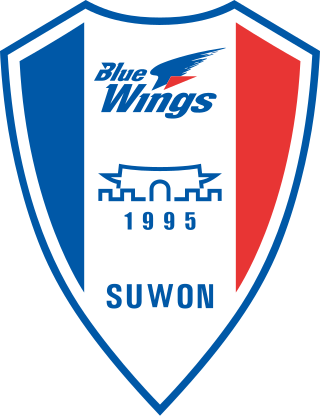
Korean is the native language for about 80 million people, mostly of Korean descent. It is the official and national language of both North Korea and South Korea, but over the past 74 years of political division, the two Koreas have developed some noticeable vocabulary differences. Beyond Korea, the language is recognised as a minority language in parts of China, namely Jilin Province, and specifically Yanbian Prefecture and Changbai County. It is also spoken by Sakhalin Koreans in parts of Sakhalin, the Russian island just north of Japan, and by the Koryo-saram in parts of Central Asia. The language has a few extinct relatives which—along with the Jeju language (Jejuan) of Jeju Island and Korean itself—form the compact Koreanic language family. Even so, Jejuan and Korean are not mutually intelligible with each other. The linguistic homeland of Korean is suggested to be somewhere in contemporary Northeast China. The hierarchy of the society from which the language originates deeply influences the language, leading to a system of speech levels and honorifics indicative of the formality of any given situation.

The Korean War was fought between North Korea and South Korea from 1950 to 1953. The war began on 25 June 1950 when North Korea invaded South Korea following clashes along the border and rebellions in South Korea. North Korea was supported by China and the Soviet Union while South Korea was supported by the United States and allied countries. The fighting ended with an armistice on 27 July 1953.

South Korea, officially the Republic of Korea (ROK), Korea Republic, is a country in East Asia, constituting the southern part of the Korean Peninsula and sharing a land border with North Korea. Its western border is formed by the Yellow Sea, while its eastern border is defined by the Sea of Japan. South Korea claims to be the sole legitimate government of the entire peninsula and adjacent islands. It has a population of 51.75 million, of which roughly half live in the Seoul Capital Area, the fourth most populous metropolitan area in the world. Other major cities include Incheon, Busan, and Daegu.

A Korean name consists of a family name followed by a given name, as used by the Korean people in both South Korea and North Korea. In the Korean language, ireum or seongmyeong usually refers to the family name (seong) and given name together. Korean names are descended from Chinese names as part of Sino-Korean vocabulary.

Yonhap News Agency is a major South Korean news agency. It is based in Seoul, South Korea. Yonhap provides news articles, pictures and other information to newspapers, TV networks and other media in South Korea.
Korean Air Co., Ltd., operating as Korean Air, is the flag carrier of South Korea and its largest airline based on fleet size, international destinations and international flights.
H.O.T. was a South Korean boy band that was created by SM Entertainment in 1996. They are considered to be the first K-pop idol group and their successful formula became the model for many K-pop groups that followed them. The group consisted of five members: Moon Hee-joon, Jang Woo-hyuk, Tony An, Kangta, and Lee Jae-won.

The South Korea national football team represents South Korea in men's international football and is governed by the Korea Football Association. South Korea has emerged as a major football power in Asia since the 1980s, having participated in ten consecutive and eleven overall FIFA World Cup tournaments, the most for any Asian country. Despite initially going through five World Cup tournaments without winning a match, South Korea became the first Asian team to reach the semi-finals when they co-hosted the 2002 tournament with Japan. South Korea also won two AFC Asian Cup titles, and finished as runners-up on four occasions. Furthermore, the team won three gold medals and three silver medals at the senior Asian Games.

The Suwon Samsung Bluewings are a South Korean football club based in Suwon that competes in the K League 1, the top tier of South Korean football. Founded in December 1995, they have won the national championship on four occasions, as well as the Asian Club Championship twice, in 2000–01 and 2001–02.

Seongnam FC is a South Korean professional football club based in Seongnam that competes in the K League 2, the second tier of South Korean football. Founded in 1989 as Ilhwa Chunma Football Club, the club has won seven national league titles, three FA Cups, three League Cups, and two AFC Champions League titles. Seongnam also placed fifth in the IFFHS Asian Clubs of the 20th century.

The Jeonnam Dragons are a South Korean professional football club based in the city of Gwangyang, South Jeolla Province that competes in the K League 2, the second tier of South Korean football. The Dragons play their home matches at the Gwangyang Football Stadium, nicknamed the "Dragon Dungeon", one of the first football-specific stadiums in South Korea. They have won the Korean FA Cup four times, the Asian Cup Winners' Cup in 1999 and became K League runners-up in 1997.

Jeonbuk Hyundai Motors is a South Korean professional football club based in Jeonju, North Jeolla Province that competes in the K League 1, the top tier of South Korean football. Playing at the Jeonju World Cup Stadium, Jeonbuk have won the K League a record nine times, including five consecutive titles between 2017 and 2021, and the Korean FA Cup five times. The club have also won the AFC Champions League twice, the first time in 2006, becoming the first club from East Asia to win the tournament since it was launched in its current format in 2003, as well as for a time being the only team in the world to have become continental champions without ever having won a domestic league title. This title guaranteed their participation at the FIFA Club World Cup in December 2006.

Gimcheon Sangmu FC is a South Korean professional association football club based in Gimcheon that competes in the K League 2, the second tier of South Korean football. Sangmu is the sports division of the Republic of Korea Armed Forces.

The first Republic of Korea was the government of South Korea from August 1948 to April 1960. The first republic was founded on 15 August 1948 after the transfer from the United States Army Military Government that governed South Korea since the end of Japanese rule in 1945, becoming the first independent republican government in Korea. Syngman Rhee became the first president of South Korea following the May 1948 general election, and the National Assembly in Seoul promulgated South Korea's first constitution in July, establishing a presidential system of government.
Koryo-saram is the name which ethnic Koreans in the post-Soviet states use to refer to themselves. The term is composed of two Korean words: "Koryo", a historical name for Korea, and "saram", meaning "person" or "people".
The 1999 K League was the 17th season of K League. In the second leg of the playoffs final, Saša Drakulić's golden goal scored with his hand caused controversy. His handball was recognized as a goal by the Chinese referee Sun Baojie, and it directly determined Suwon's league title. Under the influence of controversy, Drakulić failed to win the MVP Award.

East Asia is the eastern region of Asia, which is defined in both geographical and ethno-cultural terms. The modern states of East Asia include China, Japan, Mongolia, North Korea, South Korea, and Taiwan. China, North Korea, South Korea and Taiwan are all unrecognised by at least one other East Asian state due to severe ongoing political tensions in the region, specifically the division of Korea and the political status of Taiwan. Hong Kong and Macau, two small coastal quasi-dependent territories located in the south of China, are officially highly autonomous but are under Chinese sovereignty. Japan, Taiwan, South Korea, Mainland China, Hong Kong, and Macau are among the world's largest and most prosperous economies. East Asia borders Siberia and the Russian Far East to the north, Southeast Asia to the south, South Asia to the southwest, and Central Asia to the west. To the east is the Pacific Ocean and to the southeast is Micronesia.

The MAMA Awards is a major music awards ceremony presented annually by entertainment company CJ E&M. First held in South Korea, the majority of prizes has been won by K-pop artists, although there are other Asian artists winning in various award categories, such as for Best Asian Artist and other professional-related awards.

Inkigayo is a South Korean music program broadcast by SBS. It airs live every Sunday. The show features some of the latest and most popular artists who perform on stage. It is broadcast from the SBS Open Hall in Deungchon-dong, Gangseo-gu, Seoul.

Koreanic is a small language family consisting of the Korean and Jeju languages. The latter is often described as a dialect of Korean, but is distinct enough to be considered a separate language. Alexander Vovin suggests that the Yukchin dialect of the far northeast should be similarly distinguished. Korean has been richly documented since the introduction of the Hangul alphabet in the 15th century. Earlier renditions of Korean using Chinese characters are much more difficult to interpret.
















